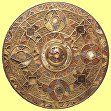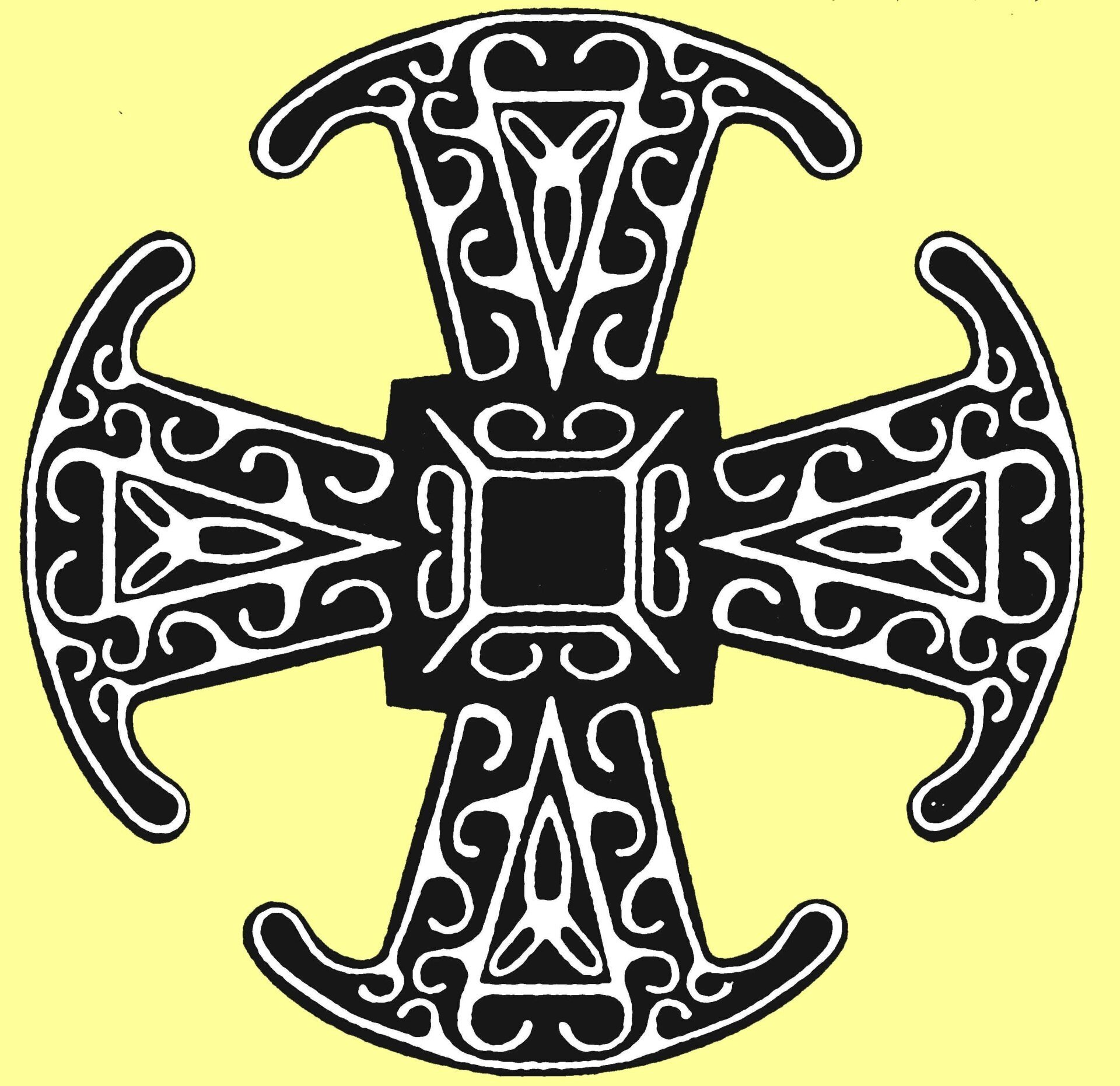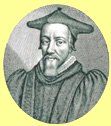The Digges Family
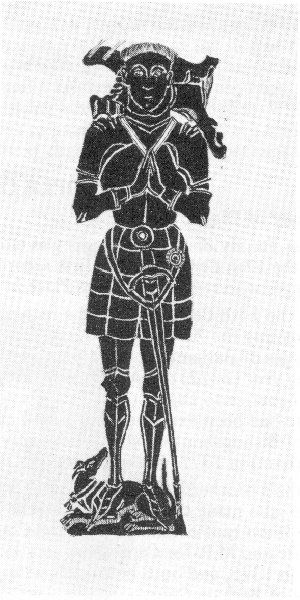
Brass Rubbing
(Probably Roger Digges c1375)
The Digges family was closely associated with Barham from 13th to 17th Centuries. The first record tells of John Digges who resided at Digges Place in the reign of Henry II.
In the 14th Century Pope John XXII directed the Abbot of St Augustine's to provide a benefice for John Digges of Barham "...a clerk whom he has found sufficiently literate." John Digges was Rector of Bishopsbourne and was buried in Barham Church in 1379.
John's brother Roger was an important person in Kent - and the person making the application to the Pope. He was Alderman of Newingate and MP for Canterbury in 1355, 1357 and 1360 and for Kent in 1366. He died in 1375 and is buried with his wife in the North Transept of Barham Church - the brass rubbing being depicted opposite.
Another John Digges was Sheriff in 1496 and was also buried in Barham Church in the Chapel of Our Lady in 1502. John left to James, his son, "...all my lands, tenements, meadows and pastures in the parishes of Barham, Kingston, Coldred, the City of Canterbury and the town of Sandwich."
James Digges was Sheriff in 1511. He died in 1535 and is also buried in the North Transept of Barham Church. He left 20d for the prisoners of Canterbury Castle and 20d for the prisoners of Westgate in Canterbury. He bequeathed the Manor of Outelmstone, including Digges Place to his grandson William Digges and the Manor of Broome to his youngest son Leonard.
Leonard Digges (1520 - 1559) was a well-known mathematician and surveyor, credited with the
inventions of the theodolite and telescope, and a great populariser of science through his publications. The first was A General Prognostication published in 1553, which became a best-seller as it contained a perpetual calendar, collections of weather lore and a wealth of astronomical material.
In 1554, Leonard took part in an unsuccessful rebellion led by the Protestant Sir Thomas Wyatt against England's new Catholic Queen Mary who took over the throne in 1553 from her father Henry VIII. Digges was condemned to death, but escaped capital punishment, instead forfeiting all his estates.
Leonard had a son, Thomas, and together they are credited with independently inventing the reflecting, and probably the refracting telescope as part of his need to see accurately over long distances during his surveying works. In the preface to 1571 Pantometria, (a book on measurement, partially based on his father's notes and observations).
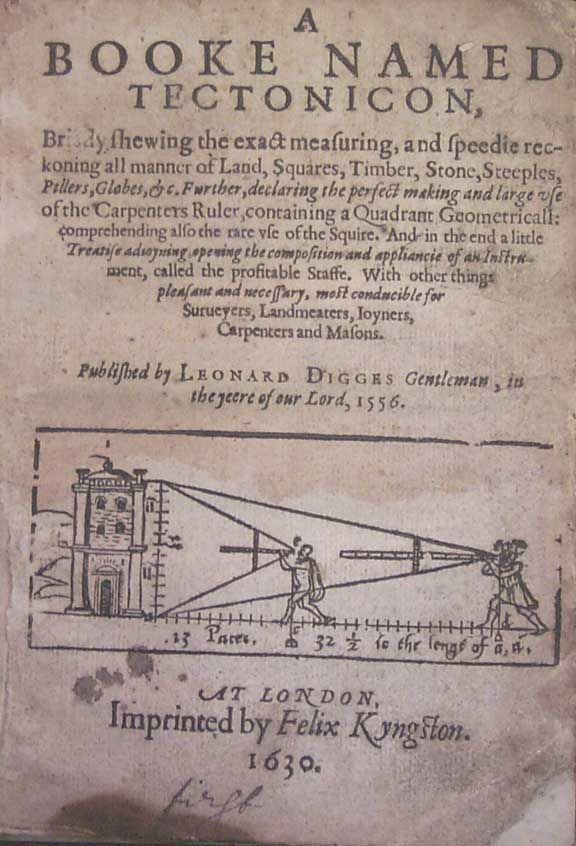
The Theodelitus and Topographical Instrument of Leonard Digges
Described by his son Thomas Digges
1927 reprint - Old Ashmolean Reprints IV
Thomas (1546 – August 24, 1595) lauded his father's accomplishments. Some of the praise of son for father appears to be extravagant exaggeration, while other claims appear more credible. On the fifth page of the Preface, Thomas Digges provides a remarkable account of his father's accomplishments:
[H]is divine mind aided with this science of Geometrical mensurations, found out the quantities, distances, courses, and strange intricate miraculous motions of these resplendent heavenly Globes of Sun, Moon, Planets and Stares fixed, leaving the rules and precepts thereof to his posterity. Archimedes also (as some suppose) with a glass framed by revolution of a section Parabolicall, fired the Roman navy in the sea coming to the siege of Syracuse. But to leave these celestial causes and things done of antiquity long ago, my father by his continual painful [painstaking] practices, assisted with demonstrations Mathematical, was able, and sundry times hath by proportional Glasses duly situate in convenient angles, not only discovered things far off, read letters, numbered pieces of money with the very coin and superscription thereof, cast by some of his friends of purpose upon downs in open fields, but also seven miles off declared what hath been done at that instant in private places.
In a way, his son Thomas followed in his footsteps and was a pivotal player in the popularisation of Copernicus's book De revolutionibus orbium coelestium.
Thomas Digges was the father of Sir Dudley Digges (1583-1639), a politician and statesman, and Leonard Digges (1588-1635), poet.
Sir Dudley Digges (Digges Court, Barham, Kent, 19 May ca 1583–18 March 1639), was elected to the Parliament of 1614 and that of 1621, and also a "Virginia adventurer," an investor who ventured his capital in the Virginia Company of London. Among the "planters," who emigrated in the 1640s, was Digges's son Edward, who became Governor of Virginia.
The Digges held the Manor of Outelmstone with Digges Place until the middle of Elizabeth I's reign when the Manor and Digges Place were alienated to Captain Halsey of London.
The Manor of Broome was sold to Sir Basil Dixwell early in the 17th century thus ending the family's association with the village.
